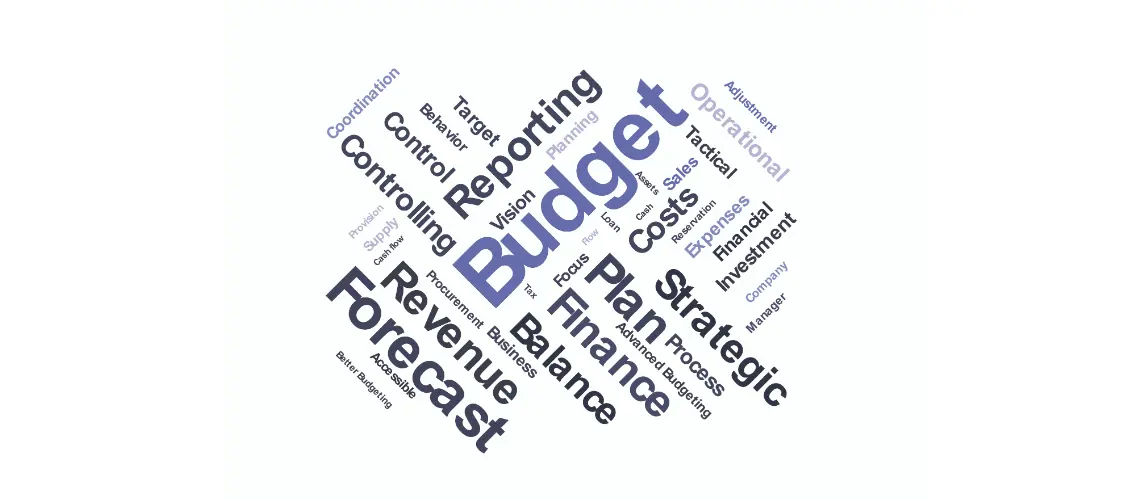For small-business marketing, crafting an effective budget is a crucial step toward success. With limited resources, finding the right balance is essential to maximize impact.
As 82% of small businesses face challenges in budget allocation, creating a tailored marketing plan becomes a pivotal task.
Navigating through this process can be overwhelming, especially for those venturing into small-business ownership.
This guide is designed to simplify the difficulties of creating a marketing budget, providing practical insights and actionable steps.
Whether you’re a seasoned entrepreneur or just starting, discover how to allocate resources strategically and propel your small business toward marketing success.
Get 50% Discount to Master ALL Aspects of Digital Marketing That Can Earn You $2,500 - $5,000 a month (Even if you are a complete beginner!)
Our students that intentionally implement what they learn from our digital marketing course make back the entire course fee within a single month or more after completing our course because our course gives them many income generating options with unlimited earning potential with no age or location barrier. The best part is no technical skills are required.
An opportunity to change your lifestyle and make money working from anywhere in the world. The results our students get from our digital marketing course prove this could be applied to any market or country and that it is designed for any skill level and work background.
*By signing up, you agree to our privacy policy and terms of service.
A marketing budget is a financial plan that outlines the amount of money a business intends to spend on marketing-related projects over a specific period, such as a quarter or year.
It includes expenses such as paid advertising, sponsored web content, new marketing staff, a registered blog domain, digital assets, marketing communications, ad design, and specific marketing channels.
The budget helps businesses align marketing strategies with business goals and funnel money into marketing campaigns with the highest potential for success.
The amount of money allocated to marketing can vary depending on industry, location, and a business’s goals. The budget can be revenue-based, where a percentage of annual revenue is set aside for marketing, or it can be based on specific marketing goals and objectives.
Why Do I Need a Marketing Budget for My Small Business?
A marketing budget is essential for small businesses for several reasons.
- It provides a clear sense of direction for managing marketing efforts and allocating financial resources more effectively.
- It encourages coordination and planning with other areas of the business, such as finance, operations, and HR.
- It provides a basis for assessing actual results and determining the return on investment (ROI) of marketing campaigns.
- It helps small businesses avoid overspending and making impulse marketing decisions that don’t generate the desired results.
- It helps small businesses maximize their marketing ROI by identifying the most cost-effective marketing campaigns that can help them reach their target audience without overspending.
The amount of money allocated to marketing can vary depending on industry, location, and a business’s goals. According to DBC, A common rule of thumb is that B2B companies should spend between 2 and 5% of their revenue on marketing, while B2C companies should spend between 5 and 10%
How to develop a Marketing Budget in 7 steps

1. Know your Target Audience
To effectively build a strong online presence, it is essential to know and understand your target audience. This involves defining your target audience and assessing the current state of your company’s digital presence.
By doing so, you can identify which channels and actions to invest in. The audience’s demographics, psychographics, behaviors, and preferences are crucial for creating meaningful connections and delivering relevant content to them.
This knowledge helps in tailoring your digital marketing strategies to better reach and connect with your potential customers. Ultimately, knowing your target audience is the first step to building a strong online presence and is vital for the success of digital marketing strategies
2. Goals and Objectives
To effectively determine your marketing goals and objectives, follow these steps:
- Establish Business Goals: Set precise marketing objectives in the medium and long term. Use the SMART acronym to ensure your objectives are specific, measurable, attainable, relevant, and time-bound.
- Set Marketing Goals: Focus on earning more sales, increasing leads, earning more subscribers, increasing brand awareness, and more.
- Create Marketing Objectives: These are measurable and specific steps that support your marketing goals. For example, increasing website traffic by 20% over the next six months or gaining 20,000 followers for the brand’s Instagram account.
- Align Objectives with Goals: Ensure that your objectives are aligned with your marketing goals to work towards a larger purpose.
- Use the SMART Criteria: Make sure that your marketing objectives are specific, measurable, attainable, relevant, and time-bound.
3. Conduct Market Research
To conduct effective market research, you need to understand your market and competition to build a robust marketing budget plan. This process will help you make informed decisions and optimize your marketing budget for maximum impact.
Below are some of the following steps you can take:
- Identify the Problem or Opportunity: Clearly define the problem or opportunity you are addressing with your market research.
- Choose Appropriate Research Types: Select specific market research types based on your budget, such as product, customer, pricing, and promotion research.
- Set Minimum Parameters: Determine the minimum amount of data needed to reach a conclusion and the appropriate sample size for your research.
- Utilize Primary and Secondary Research: Consider both primary and secondary research methods. Primary research, such as interviews and focus groups, provides firsthand data, while secondary research relies on existing data collected by a third party.
Analyzing current market trends and ensuring that your budget is allocated to the channels most utilized by your target audience is crucial for effective market research and budget planning.
If you want to learn how to develop a marketing budget for your business, click here to learn how we can help you achieve that.
4. Estimate Expenses
Estimating expenses for a marketing budget involves considering various factors such as company revenue, industry benchmarks, and specific marketing needs. It’s important to align the marketing budget with the organization’s spend culture, democratize team spending, centralize control, and have a clear and well-informed budget in place to track marketing spending effectively.
To estimate expenses and allocate a marketing budget effectively, consider the following steps:
- Estimate Gross Revenue: Estimate the gross revenue for the period to be budgeted, based on previous results and estimates from the marketing department.
- Allocate Percentage to Marketing: Decide the percentage of the estimated revenue to be allocated to marketing. This percentage varies based on the company’s growth stage. For instance, a high-growth startup may allocate 15%-30% of its projected revenue to marketing, while a company with stable growth may allocate 2%-10% of its revenue to marketing.
- Allocate Budget to Goals: Allocate an appropriate amount of the budget to reach specific targets, such as lead generation, sales, subscribers, and brand awareness. This involves repeating the process for each goal to ensure the budget is aligned with the objectives.
By considering these factors, businesses can make informed decisions when estimating their marketing expenses.
5. Creating a Detailed Marketing Campaign
To create a detailed marketing campaign that aligns with your business goals and strategy, it is essential to follow a comprehensive process. Here are the steps to consider:
- Define Campaign Goals: Outline specific and measurable goals for your campaign, such as increasing sales, boosting brand awareness, or driving customer engagement.
- Understand the Target Audience: Identify and understand your target audience to tailor your campaign messaging and choose the most effective channels to reach them.
- Craft the Campaign Message: Develop a compelling and clear message that resonates with your target audience and encourages them to take the desired action. The message should be aligned with your campaign goals and brand identity.
- Select Appropriate Media Channels: Choose the most suitable media channels to deliver your message based on your target audience’s behavior and your campaign’s budget and goals.
- Set a Realistic Budget: Determine a budget that allows you to effectively communicate your message to your audience while ensuring a positive return on investment.
- Monitor and Measure Results: Continuously monitor the performance of your campaign and measure the results against the predefined goals. This will help you make informed decisions and optimize the campaign as needed.
You can learn from various Digital Marketing Institutes. But I personally recommend Digital Marketing Skill Instiute (DMSI).
6. Marketing Channels
Choosing effective marketing channels is a crucial step in developing a successful marketing strategy. To do so, consider the following steps:
- Evaluate Available Options: Evaluate the different marketing channels available and choose the ones that best suit the needs of your brand.
- Consider Costs: Consider the costs associated with each channel and prioritize spending according to your objectives.
Align Channels with Objectives: Ensure that the channels you choose align with your business goals and strategy. - Prioritize Channels: Prioritize the channels that are most effective in reaching your target audience and achieving your marketing goals.
- Monitor and Measure Results: Continuously monitor the performance of your chosen channels and measure the results against your predefined goals. This will help you make informed decisions and optimize your marketing efforts as needed.
By following these steps, you can choose the most effective marketing channels for your brand and allocate your marketing budget accordingly. This will help you achieve your marketing goals and drive the success of your marketing campaigns.
7. Monitoring and Adjusting the Budget
To effectively monitor and adjust the marketing budget, the following steps should be considered:
- Regular Monitoring: Regularly monitor the metrics and actual spending to ensure they are in line with the budget and make any needed adjustments based on the results.
- Allocate for Contingencies: Allocate an amount for contingencies to account for unexpected expenses or opportunities that may arise during the budget period.
- Utilize Budgeting Tools and Technologies: Use budgeting tools and technologies to help plan and track spending. These tools can provide unprecedented visibility and a unified view of marketing spend, automate expense tracking, and offer features for collaboration and budget management.
Businesses can ensure that their marketing budget is effectively managed, and resources are allocated optimally to achieve the desired marketing outcomes.
What expenses does a marketing budget typically cover?

A marketing budget typically covers a wide range of expenses related to promoting, advertising, and marketing a business and its products, services, or solutions. These expenses directly contribute to the performance of marketing activities and overall efforts. The categories of marketing expenses can include various costs, such as digital and social media advertising, marketing automation platforms, digital assets, marketing communications, ad design, and specific marketing channels. Some examples of marketing expenses include:
- Digital and traditional ads
- Marketing personnel (in-house or external)
- Digital assets (website, social media, content production)
- Marketing management tools (analytics services, marketing automation apps)
- Events and marketing collaterals (trade shows, booths, promotional items, brochures, business cards, signs, samples)
- Sponsorships and other branding efforts
It’s important to include plenty of detail in the marketing budget to ensure that all marketing spending is accurately classified. By tracking and categorizing marketing expenses, businesses can gain a clear understanding of their marketing spend and make informed decisions to optimize their marketing efforts.
How to Determine the Best Marketing Budget for Your Small Business
Determining the best marketing budget for your small business involves several considerations. A common rule of thumb is that B2B companies should spend between 2 and 5% of their revenue on marketing, while B2C companies should spend between 5 and 10%.
However, the exact amount a small business should spend on marketing can vary widely based on factors such as industry, revenue, and business objectives.
Here are some steps to help you determine the best marketing budget for your small business:
- Evaluate Your Current Marketing Efforts: Review your existing marketing activities and their impact on your business. This will provide insights into the effectiveness of your current spending and help you identify areas for improvement.
- Consider Industry Benchmarks: Research how other companies in your industry allocate their marketing budgets. This can provide valuable reference points and help you understand common practices within your specific sector.
- Experiment, Evaluate, and Scale Your Campaigns: Test different marketing strategies and channels to identify the most effective approaches for your business. Once you have data on the performance of these campaigns, you can allocate your budget to the most successful channels.
- Check Your Budget Against Your Marketing Strategy: Ensure that your marketing budget aligns with your overall marketing strategy and business objectives. It’s important to invest in channels that are most likely to reach your target audience and generate a positive return on investment.
- Monitor and Adjust: Regularly monitor the performance of your marketing activities and make adjustments to your budget based on the results. This will help you optimize your spending and ensure that your budget is allocated to the most effective channels.
Who is involved in determining a marketing budget?

The process of determining a marketing budget involves various stakeholders and considerations. The following parties are typically involved in the process:
- Finance and Executive Team: Finance and executive leaders across the organization may come together on an annual, biannual, or quarterly basis to allocate funding across the organization. The amount allocated is based on profitability and sales projections.
- Marketing Leaders: Marketing leaders propose a budget based on the anticipated spending needed to achieve the marketing goals.
- Program Leaders: Program leaders, such as the digital marketing manager or social media manager, may provide detailed budget requests for a given program.
- Marketing Team: The marketing team is responsible for proposing and justifying the budget based on the anticipated spending needed to achieve the marketing goals.
- External Partners: External partners, such as agencies or consultants, may also be involved in the budgeting process, especially if they are responsible for executing specific marketing programs or campaigns.
By involving these stakeholders, businesses can ensure that the marketing budget is aligned with the overall business strategy and that the necessary resources are allocated to achieve the marketing goals.
Marketing Budget Allocation
When it comes to managing your marketing money, keeping a close eye on your spending is crucial. Tracking your marketing budget means carefully monitoring and recording all the money you allocate to various marketing activities.
This helps you stay organized, understand where your funds are going, and ensure you’re getting the most out of your marketing efforts.
Start by creating a detailed record of your planned expenses and compare it regularly with your actual spending. This way, you can identify any discrepancies and make informed decisions about adjustments if needed.
Additionally, tracking your marketing budget allows you to measure the performance of different strategies and channels, giving you insights into what works best for your business.
In simple terms, tracking your marketing budget is like creating a roadmap for your spending, helping you navigate the marketing landscape effectively and make informed decisions along the way.
Tracking Your Marketing Budget
Marketing budget allocation is like sharing your money to make sure you spend it wisely on promoting your business. Imagine you have a certain amount of money set aside for marketing—this is your budget. Now, allocation is deciding how much of that budget goes to different marketing activities.
Here’s the thing: every business is unique, so there’s no one-size-fits-all approach. You have to figure out what works best for your business goals. Maybe you want to invest more in social media or try out some online ads. Allocating your budget helps you plan and make sure you’re putting your money where it matters most.
If you don’t allocate your marketing budget, it’s like driving without a map. You might end up spending too
Conclusion
Creating a marketing budget for your small business is a crucial step towards achieving your marketing goals. By allocating resources thoughtfully, you ensure that your money is invested in strategies that align with your business objectives. Remember, every business is unique, so tailor your budget to fit your specific needs and industry trends. Tracking your budget over time allows you to gauge the success of your marketing efforts and make informed adjustments. With a well-crafted marketing budget, you not only maximize your return on investment but also set the foundation for sustained business growth. Start planning your marketing budget today to pave the way for strategic and impactful marketing campaigns in the future.
Click link to learn more about our course => https://digitalmarketingskill.com/digital-marketing-training-course or click here now
FAQs
What is a good marketing budget for a small company?
Determining a good marketing budget for a small company involves various factors such as revenue, industry, and business objectives. However, the exact amount a small business should spend on marketing can vary widely based on factors such as industry, revenue, and business objectives. It’s important to continuously evaluate the performance of your marketing activities and make data-driven decisions to optimize your spending.
How do you ask for a marketing budget?
Asking for a marketing budget involves evaluating your current marketing efforts, considering industry benchmarks, experimenting, evaluating, and scaling your campaigns, and monitoring and adjusting your budget. It’s important to involve key stakeholders, such as finance and executive leaders, marketing leaders, program leaders, and the marketing team, in the budgeting process. This ensures that the marketing budget is aligned with the overall business strategy and that the necessary resources are allocated to achieve the marketing goals.
More Resources
Content Marketing Budget in Nigeria: Allocate Your Content Marketing Budget
Content Marketing Budget for Nigerian Businesses: Statistics That Will Guide You
How To Build A Marketing Budget That Your CFO Will Definitely Approve



